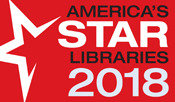Data Centered: A Q&A with Linda Hofschire | LJ Index 2018
Linda Hofschire, PhD, director of the Library Research Service at the Colorado State Library, and a 2017 LJ Mover & Shaker, is chair of the newly created Measurement, Evaluation, and Assessment Committee of the Public Library Association.
 Linda Hofschire, PhD, director of the Library Research Service at the Colorado State Library, and a 2017 LJ Mover & Shaker, is chair of the newly created Measurement, Evaluation, and Assessment Committee of the Public Library Association (PLA). A longtime chair of the American Library Association’s Committee on Research and Statistics, she serves as a member of the Library Statistics Working Group of the Institute of Museum and Library Services (IMLS). She is best known to many for her 2015 brainchild, the Research Institute for Public Libraries (RIPL), an ongoing series of national, regional, and state institutes that fosters a community of practice among public library leaders in their use of data for strategic planning and decision-making.
Linda Hofschire, PhD, director of the Library Research Service at the Colorado State Library, and a 2017 LJ Mover & Shaker, is chair of the newly created Measurement, Evaluation, and Assessment Committee of the Public Library Association (PLA). A longtime chair of the American Library Association’s Committee on Research and Statistics, she serves as a member of the Library Statistics Working Group of the Institute of Museum and Library Services (IMLS). She is best known to many for her 2015 brainchild, the Research Institute for Public Libraries (RIPL), an ongoing series of national, regional, and state institutes that fosters a community of practice among public library leaders in their use of data for strategic planning and decision-making.
 What new output measures do you believe would be of value to public libraries?
What new output measures do you believe would be of value to public libraries?
Ones that further quantify the roles of public libraries in community engagement, education, and economic development. Such as:
- use of innovation-and creativity-fostering Maker spaces
- use of library facilities by nonlibrary groups
- delineation of library programs and program attendance by topic
- library outreach efforts to individuals and organizations
We have examples of states tackling some of these. Minnesota is collecting data on library outreach services and community partnerships, and Colorado followed Minnesota’s lead. In addition, Colorado is collecting more detailed data on library program attendance by topic. Notably, however, all of these new data elements are qualitative in nature.
What major challenges do you believe we face in improving the collection and use of library data?
The greatest challenge we face is the tremendous need for more and better training and support. We need to offer more “train the trainers” opportunities to state data coordinators and others who assist local library leaders in collecting, reporting, and using such data. Nationwide—certainly in most states—this kind of infrastructure is almost entirely missing. Simply formulating new data elements and promulgating definitions of them is not enough. Library folks at state and local levels need more help than they are getting. This is the prime reason why I advocate for future new PLS data element proposals to include plans for plainly needed training and support.
What else would you like to see IMLS and PLA doing to improve data collection, reporting, and/or use?
Many local librarians need tools, or at least examples, that assist them in collecting new measures, particularly electronic ones, comparably to their peers at other libraries, and to facilitate their use of data, such as IMLS’s new search and compare tool, in beta-testing. I encourage all public library data users to explore this new tool and provide feedback for improving it.
What would you like to see happening at state and local levels?
Ideally, more state library agencies and/or regional consortia would allocate staff in a way that makes a serious priority of quality data collection, reporting, and use. I am cautiously optimistic about this at the local level. This is anecdotal, but, during the three years of RIPL events, we have seen a steady increase in the number of attendees from local libraries with a job title something like “data librarian.” This suggests that local libraries are taking the lead in understanding the renewed importance of data in library planning and decision-making. I would especially like to see state and local data users make more use of the data you provide on the LJ website for the Star Libraries/LJ Index project, in addition to simply exercising bragging rights.
What is your personal priority for improving the public library data environment?
Ultimately, my priority is to move evaluation and data use from the periphery to the center of library management. As we look to the future of RIPL, it is clear that future events must fulfill two needs simultaneously: continue to provide basic education and training to new library data users, and provide opportunities for RIPL “graduates” and other power data users to continue to develop their expertise and cultivate new skills that will ensure the public library community has a new generation of library data leaders. We are considering making changes to future RIPL events so that they will provide multiple tracks tailored to their levels of expertise and experience. In addition, we hope to provide deeper dives into individual topics. We are at a turning point that will determine what the future public library data environment looks like and how it continues to grow and change to respond—hopefully, more nimbly—to the increasingly rapid changes facing public libraries.
To Access STAR Libraries 2018 Home page - click here
RELATED
ALREADY A SUBSCRIBER? LOG IN
We are currently offering this content for free. Sign up now to activate your personal profile, where you can save articles for future viewing









Add Comment :-
Comment Policy:
Comment should not be empty !!!